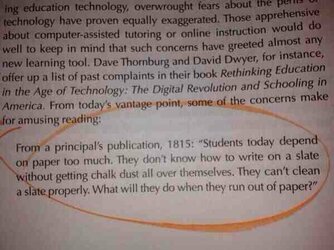@interestedwriter1710 is your argument Gen Z is too stupid to get a job?
My argument alludes to the possibility that Gen Z may be interpreted as the so-called "lost generation" by historians in the future, at least for several demographics. I would want to emphasize that the "alternative interpretation" I had provided remains that, alternative, that instead of focussing on the questionable economic quality of many countries of the 21st century, I was trying to specifically identify issues in mathematics and the sciences. From what I can see, for the few demographics that exist around the world, Gen Z seems to appear less intelligent on average, coupled with greater impulsivity of thinking and lower conscientiousness, which heavily impacts mathematical studies.
Note that, historically, serious mathematicians do not study mathematics due to money, and some even study mathematics disagreeably even given the threat of starvation and death - there was even a Jewish mathematician who remained active even when interned in a Nazi concentration camp. That is, although it is no doubt reasonable to acknowledge the sorry state of many economic systems around the world today that discourages human capital optimization, it was exponentially worse historically. Indeed, there are many stories of mathematicians who almost did not become mathematicians due to the stigma associated with various subcultures. Isn't pure mathematics useless? Who would pay for mathematicians to investigate the distribution of primes? Such a problem had always existed for millenniums. One contrast with Gen Z, in general, is that I seem to have detected a greater amount of entitlement, pertaining to suggestions as
"if only my teacher was better and more creative in primary school, I would be an engineer now" - although an interesting claim, historically, for many STEM human capital, they did not even have teachers to begin with, including a number of highly successfully mathematicians who were entirely self-taught (e.g. Green, Ramanujan, a line of mathematicians who had studied from Euler's books, etc.). Perhaps such a selection process may have filtered out lower-quality STEM human capital, and perhaps that might provide one suggestion as to why Gen Z/Millenial mathematicians and scientists, including graduate students, seem to be much lower quality on average (due to a lack of filtering).
Moving forward, I do in fact believe that a very sizable proportion of Gen Z will be too stupid, to be it crudely, to adapt to the transforming 21st century. Of course, I do not believe Gen Z is too stupid to be employed in labor. But what does it mean? What does the inability to adapt to the transforming 21st century mean? It is possible for most to imagine that moving forward into the 21st century, increasingly, that occupational specialization rates, in their critical values, will plummet drastically. That is to say, historically, the critical value for the proportion of agricultural occupational specialization demonstrates to be quite high in some contexts, that up to 50% of entire demographics are involved in agriculture, and if not, society may collapse. As society developed, the critical values had begun to drop and even drastically. For the 21st century, it is expected that critical values for occupational specialization rates will drop in rapid fashion across the board due to STEM human capital managing teams of automated entities, such as drones, robots, artificial intelligence algorithms, and so on.
But what about the "liberal arts" degreed persons? It is already understandable from my perspective that STEM human capital will contribute disproportionately to society, while there will be persons who merely leach, not just with a percentage of former liberal arts students, but NEETS (not in education, employment, or training). Increasingly, I would not want to work, or provide slave labor to entire masses of entitled persons who are unable to contribute, or give back to people like me, and I may be increasingly attracted to political positions that fight exceedingly hard so as to not be put, implicitly, in positions to provide cognitive slave labor to millions of non-contributing persons. To put it bluntly, I cannot see a productive future with a large proportion of Gen Z, of the many demographics today (of western countries more specifically), that it seems my interactions with such subcultures will become increasingly hostile and violent, and if a sufficient amount of Gen Z STEM human capital feels the same way, then the situation may become worse, for them. One can, of course, note that liberal arts students tend, disproportionately, to be of a certain ethnic-cultural background, and of a certain socio-economical background, but not all, of course, are of such backgrounds.
Now, in the context of the United States, to go further, I would think that certain subcultures should be very careful in the way that they carry out their caste systems, that although society will be heavily led by STEM human capital, how such subcultures treat said STEM human capital may have consequences, and so might the policies of, shall we say, de-affirmative action as imposed on a particular demographic (East-Asian American).

 Your support makes Blue Moon possible (Patreon)
Your support makes Blue Moon possible (Patreon)